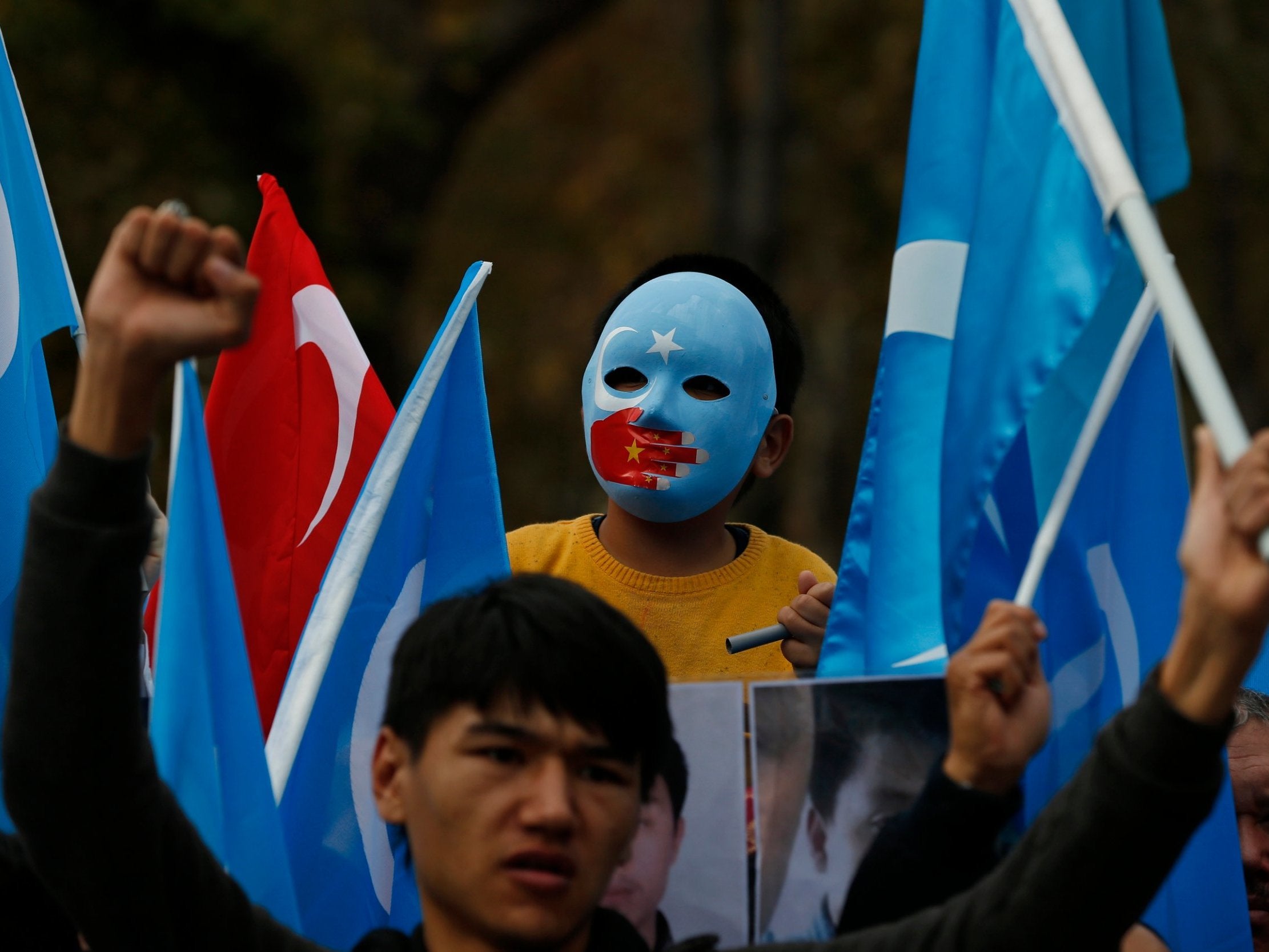China says ambassadors concerned over Muslim re-education camps should not 'interfere'
Envoys seek meeting with region's top official for explanation of alleged rights abuses
China has said 15 foreign ambassadors who issued a letter expressing their concern about the incarceration of as many as one million Uighurs and other Muslims in reeducation camps should not “interfere in the internal affairs of other countries”.
The group of ambassadors, reportedly spearheaded by Canada, sought a meeting with the top official in the Xinjiang region for an explanation of alleged rights abuses against the Muslim minorities.
China’s Foreign Ministry spokeswoman, Hua Chunying, said it would be “problematic” if the diplomats were attempting to put pressure on local authorities in the northwestern region.
Ms Hua said the letter violated the terms of the Vienna Convention governing diplomatic relations and the ambassadors should not “interfere in the internal affairs of other countries”.
“As ambassadors, they are supposed to play positive roles in promoting mutual understanding, mutual trust and cooperation ... rather than making unreasonable requests to the countries where they are based,” Ms Hua said.
She said the letter was based on hearsay, despite widely distributed reports from detainees, relatives and officials documenting the sweeping and seemingly arbitrary detentions.
Inmates and relatives say the camps impose military-style discipline and punishments and force detainees to renounce their religion and culture while swearing loyalty to China’s president, Xi Jinping, and the ruling Communist Party.
Up to one million Uighurs, Kazakhs and other minorities have been arbitrarily detained in the internment camps, a UN panel and human rights groups has estimated.
One former inmate said Muslims were forced to denounce Islam and made to eat pork and drink alcohol - acts forbidden by their religion.
While the letter has not been made public, Reuters news agency said it was signed by 15 Western ambassadors, including the envoys of Britain, Canada, France, Switzerland, Germany, Australia and the EU.
It comes as a bipartisan group of US politicians is bringing a measure to urge Donald Trump to condemn “gross violations” of human rights in Xinjiang.
The legislation would also support an existing push for sanctions against the chief of the Communist Party in Xinjiang, Chen Quanguo. and other officials under the Magnitsky Act, which prevents foreign officials from entering the US and freezes any assets they have in American banks.
Other sanctions raised for consideration by the act include a ban on sales of US-made goods or services to Xinjiang state agents such as those that could be used for surveillance and suppression.

China has claimed Muslims are grateful to be detained in the camps, which the ruling Communist Party depicted as an attempt to bring the majority Muslim minorities into the “modern, civilised” world.
Authorities said petty criminals were sent to “employment training centres” to learn the Mandarin language, as well as ”ideological education, psychological rehabilitation and behaviour correction”.
Additional reporting by agencies
Join our commenting forum
Join thought-provoking conversations, follow other Independent readers and see their replies
Comments